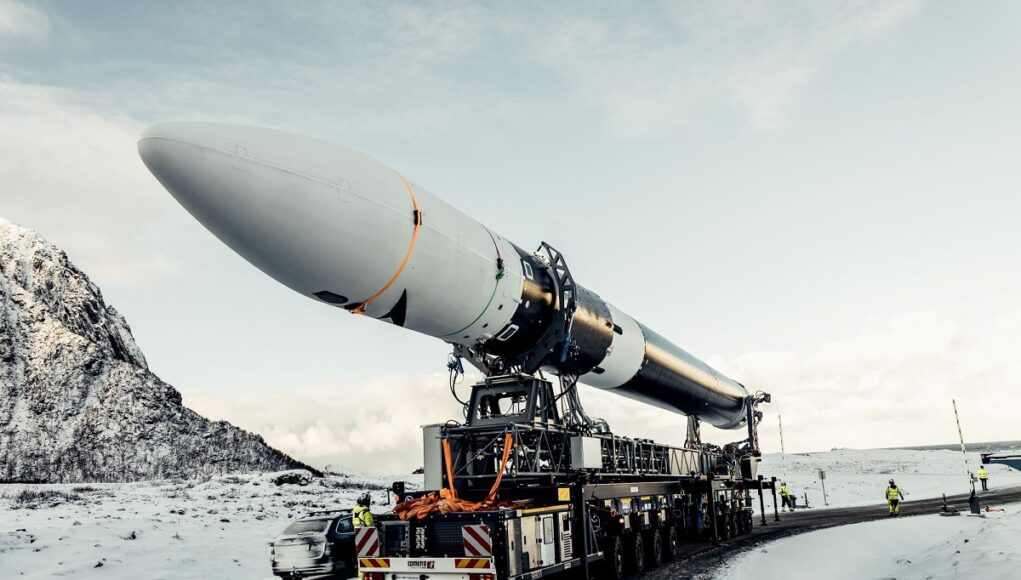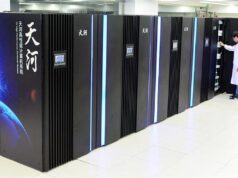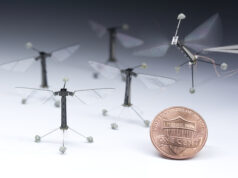It always starts in a basement.
Three wide-eyed engineering students, strung out on Red Bull and existential dread, hunched over rocket parts like medieval alchemists. That’s how this fever dream began — at the Technical University of Munich, where Daniel Metzler, Josef Fleischmann, and Markus Brandl decided to stop building class projects and start building history.
There was no way to know back then — in 2018, in a Bavarian workshop reeking of grease and ambition — that they would be the ones to bring Germany back to the launchpad. Not since Wernher von Braun’s V-2 rockets screamed over London had a German-made rocket of this scale dared to breach the sky.
Now, that time has come. The Spectrum rocket — sleek, powerful, and 92 feet tall — is locked and loaded on the windswept edge of Norway’s Andøya Spaceport, primed for a historic test flight.
Forget Ariane. Forget Soyuz. Forget Elon Musk — if only briefly. This isn’t just a rocket. It’s a war cry wrapped in aluminum and fire. It’s Germany’s stake in the cosmic poker game of sovereignty.
And it’s about to lift off.
The Big Burn: Propane, Liquid Oxygen, and the Death of Complacency
There’s a madness in designing rockets in this political climate — a necessary, glorious madness.
The Spectrum is not some recycled Cold War relic. It’s a modern machine born of anxiety, necessity, and a deep-seated European fear that the Americans and their Falcon 9s are laughing all the way to Mars.
Nine Aquila engines roar in the rocket’s belly, burning propane and liquid oxygen — a cocktail of clean combustion and unapologetic ambition. It can haul a full metric ton to low Earth orbit, and though it’s not reusable, it wasn’t built to be.
This is a statement rocket. A marker on the board. “We’re here,” it screams. “And we’re done playing second fiddle.”
Isar Aerospace has already sunk over €400 million into this glorious gamble — some from the European Space Agency, some from the German government, some from investors with nerves of steel and stars in their eyes. They’re not just betting on payloads. They’re betting on pride.
Andøya, the remote Norwegian launch site, is equal parts tundra and testbed — a scenic place to launch a revolution. Managed by Andøya Space, 90% owned by the Norwegian government, the site has hosted sounding rockets for decades. But this? This is different.
This is the first orbital launch attempt from Western Europe’s mainland, a geographical shift as political as it is practical.
From Ariane to Anarchy: Europe’s Struggle for Space Sovereignty
Europe has always had a love-hate relationship with space. For decades, they handed the keys to France and watched the Ariane rocket family dominate the launch scene. But now? Ariane 6 is behind schedule. Vega C barely made it back after an embarrassing flameout.
The continent has outsourced launches to SpaceX, Soyuz, even Virgin Orbit — and each time, it’s like writing a check to your ex’s new lover.
Isar wants to end that cycle. It wants to bring the game back to Europe — not the EU as a monolith, but to hungry, cold-eyed startups willing to fail gloriously on the road to independence.
“We are approaching the most important moment of our journey so far,” said Metzler, Isar’s CEO, in the driest corporate-speak imaginable. But what he meant — and what everyone inside the control room knows — is this:
If Spectrum flies, it resets the clock.
The European Space Agency (ESA) has finally smelled the napalm and shifted its model. Instead of giving billions to incumbent aerospace giants, it’s launching the European Launcher Challenge — a capitalist shootout for orbital supremacy.
Isar will face down other startups like Rocket Factory Augsburg, HyImpulse, and MaiaSpace in a contest to see who can deliver satellites with speed, cost-efficiency, and fewer bureaucratic meltdowns.
It’s NASA’s commercial playbook, European edition — and Isar wants to be its SpaceX.
You can read more about ESA’s push for independence here: European Launcher Challenge.
Geopolitical Gravity: Rockets, Reusability, and the Return of Trump
What’s fueling this panic beyond technical ambition? Politics.
With Trump looming over the 2024 US election like a nuclear fog bank and Elon Musk playing kingmaker from his starship factory, Europe is nervous. Very nervous. Germany’s likely next chancellor, Friedrich Merz, has already signaled a hard pivot toward strategic independence. That means more defense spending, fewer American weapons contracts, and yes — homegrown space access.
The fear? That the U.S. — under a Trump-led administration — might flip the switch. Literally. European militaries are whispering about “kill switches” on their American-made F-35 fighter jets. Space contracts are suddenly under the microscope.
And right now, SpaceX controls the high ground.
France’s science minister Philippe Baptiste didn’t mince words after Ariane 6’s recent success. “If we want to maintain our independence,” he said, “we must equip ourselves with the means for strategic autonomy, and space is an essential part of this.”
Isar’s Spectrum is part of that plan.
A bold, first-generation, expendable rocket may not dethrone SpaceX — yet. But it puts Europe back in the game. And in this age of orbital surveillance, Arctic navigation, and private moon landers, being in the game is everything.
Last Flight of the Rational Mind
Make no mistake: this first launch will probably fail.
The odds are brutal. Rocket Lab, Astra, Firefly — all of them kissed the sky and fell on their first try. But that doesn’t matter. What matters is that the pad is hot, the engines are lit, and the fuse is burning.
“Whatever the outcome, Isar Aerospace’s upcoming Spectrum launch will be historic,” tweeted ESA Director General Josef Aschbacher. And he’s right. History isn’t made by winning on the first try. It’s made by daring to try at all.
The ghost of von Braun may be watching, but this isn’t his rocket. This isn’t war. This is rebirth — of Germany’s space dreams, of Europe’s commercial potential, of a launch strategy no longer built on the kindness of Elon.
In the bitter cold of Andøya, as gulls scream overhead and the rocket groans on the pad, one thing is certain:
The ride has begun.












